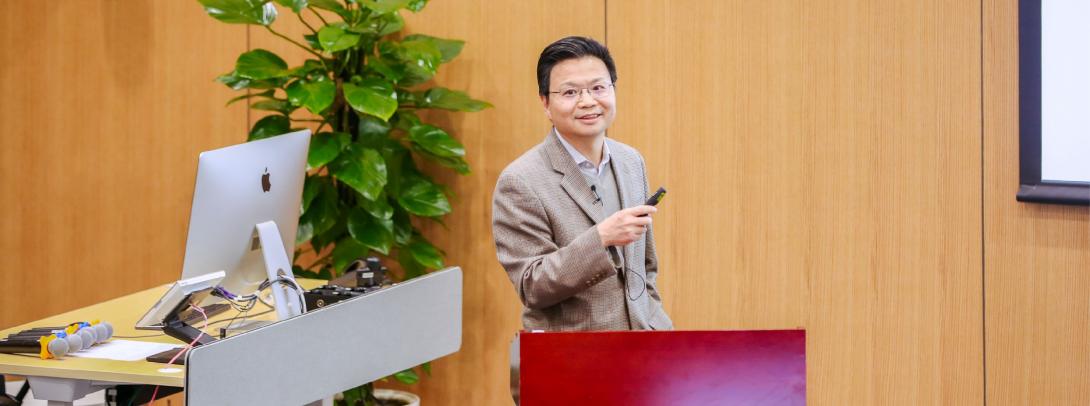Since Chinese Academy of Sciences academician E Weinan first proposed “AI for Science” back in 2018, the notion has now been widely embraced by the research community. On March 23, E brought AI for Science to NYU Shanghai in the AI Forum Series to explore how this notion could further ignite interdisciplinary research at a university that values such collaboration.
NYU Shanghai Provost Joanna Waley-Cohen welcomed the standing-room-only audience. “The forum series seeks to bring renowned scientists and practitioners in the field of artificial intelligence to speak about their visions for the future with AI and its multidimensional impact on our society,” she said. “It also aims to bring together researchers and educators from different levels and fields to converse on these topics, providing our audience with an opportunity to hear interpretations and insights from interdisciplinary approaches.”
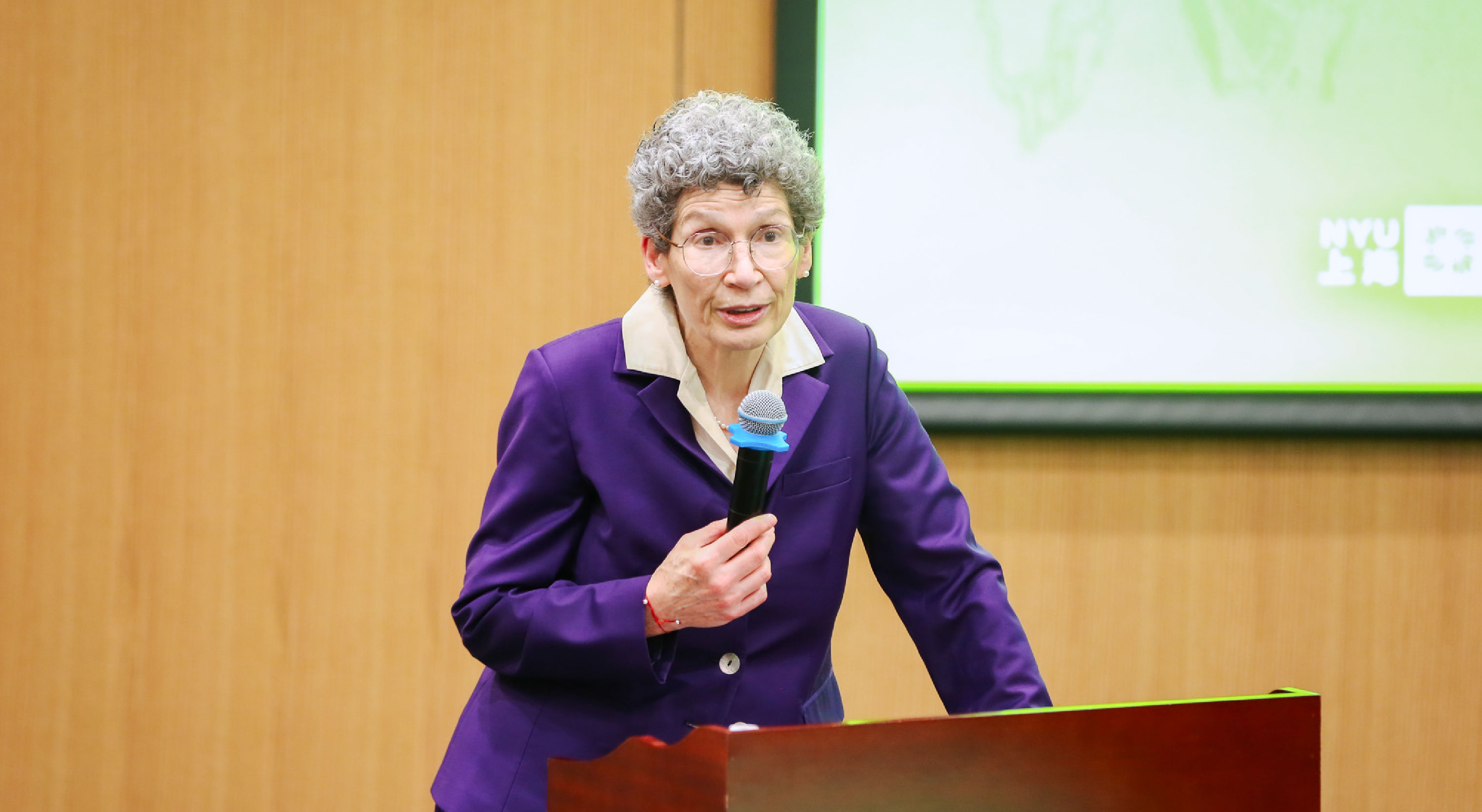 Provost Joanna Waley-Cohen kicking off the event
Provost Joanna Waley-Cohen kicking off the event
In his keynote, Professor E explained that the data-driven Keplerian paradigm and the fundamental-principles-driven Newtonian paradigm are the two major approaches to scientific research. While each paradigm has significantly contributed to scientific advancement, both have encountered challenges in modern times. “One major obstacle for further breakthroughs in scientific research and technological advancement is the lack of effective and efficient tools to solve high-dimensional math problems,” he said. “And that’s where deep learning, or AI, can help.”
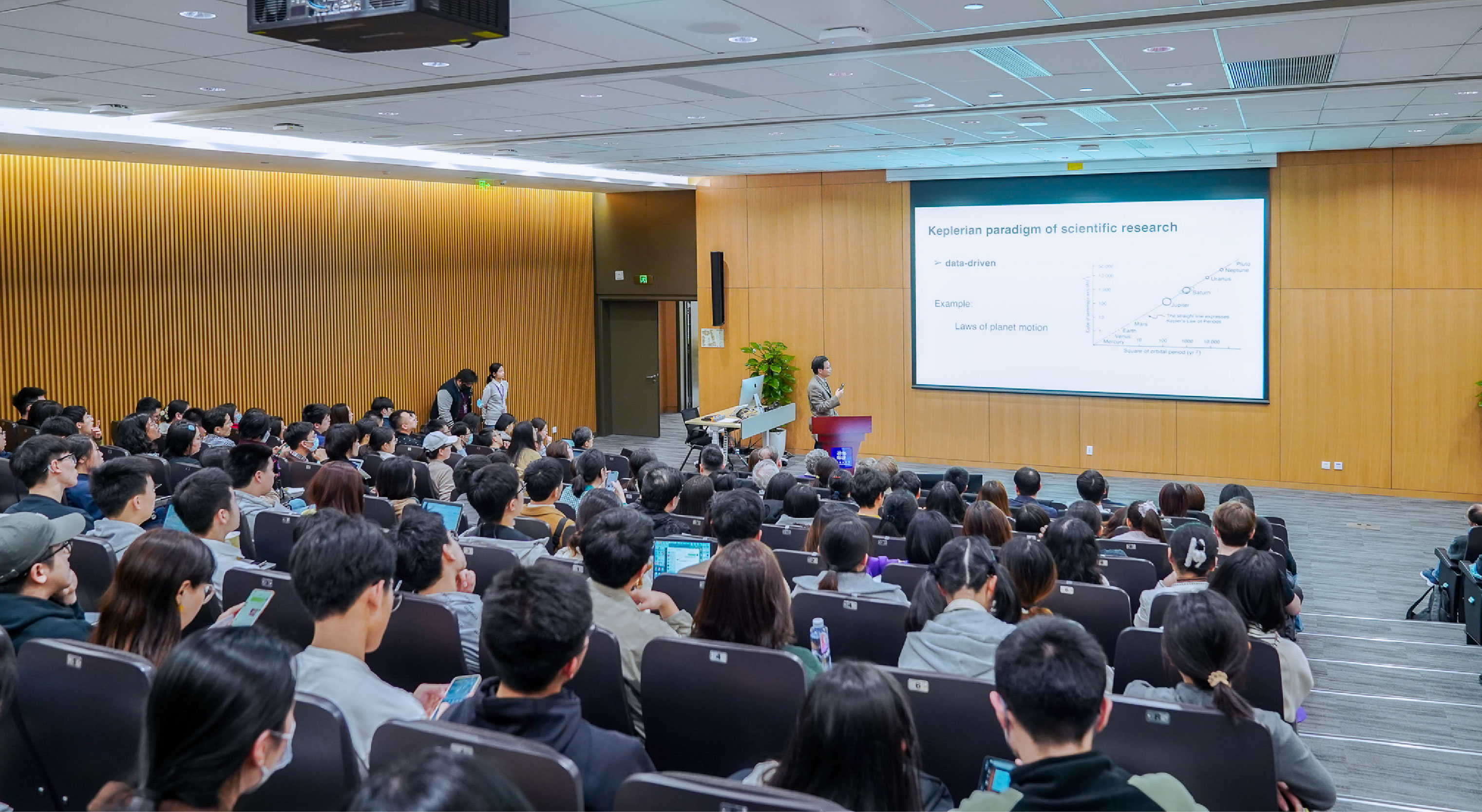 Professor E speaking before a standing-room only audience
Professor E speaking before a standing-room only audience
E elaborated on three typical tasks that are well performed by deep learning technologies: image classification, human face picture generation, and AlphaGo. The essence of these tasks lies in math problems that are too complicated to solve using traditional methods. However, deep neural networks, powered by AI, have proven to be successful tools in solving these problems. He further provided examples of how AI can be used in various fields to assist scientific research, such as using AlphaFold2 to solve the protein folding problem in life science or employing molecular dynamics tool DeePMD to predict the phase diagram of water.
With AI changing the scientific landscape, E proposed a new paradigm for scientific research, including using first principle-based models/algorithms, new experimental tools and protocols, and new literature/data/knowledge databases as infrastructure. “Under this new paradigm, disciplinary boundaries will disappear, leading to a natural gateway to interdisciplinary research and, most importantly, bringing scientific research closer to real-world applications,” he said. “We are on the verge of a truly new scientific breakthrough. We should fully embrace this opportunity.”
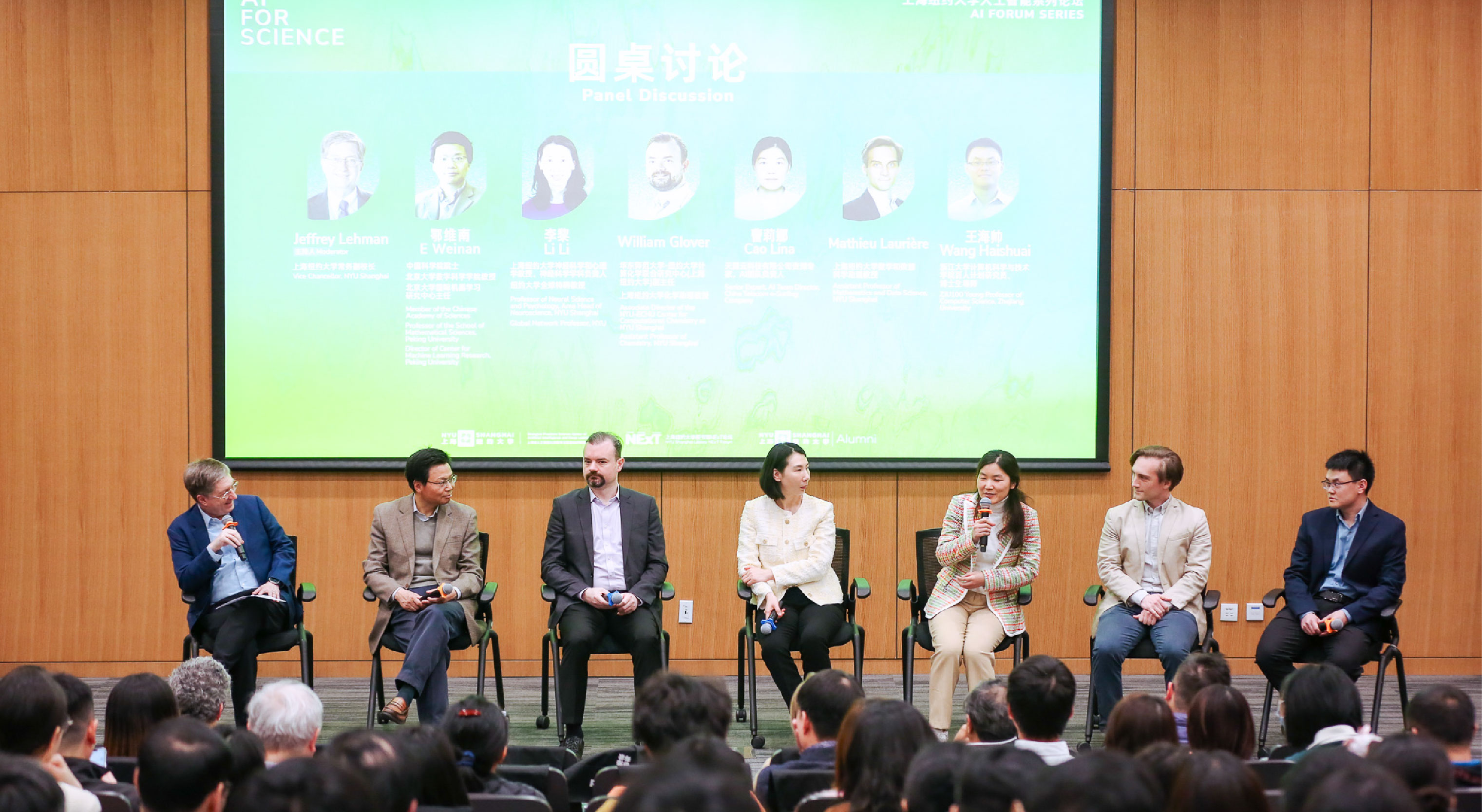 Panelists share their insights in a panel discussion moderated by Vice Chancellor Jeff Lehman
Panelists share their insights in a panel discussion moderated by Vice Chancellor Jeff Lehman
Following E’s inspiring keynote, NYU Shanghai Vice Chancellor Jeff Lehman moderated a panel discussion featuring researchers and professionals from various disciplines shared their insights on AI for Science.
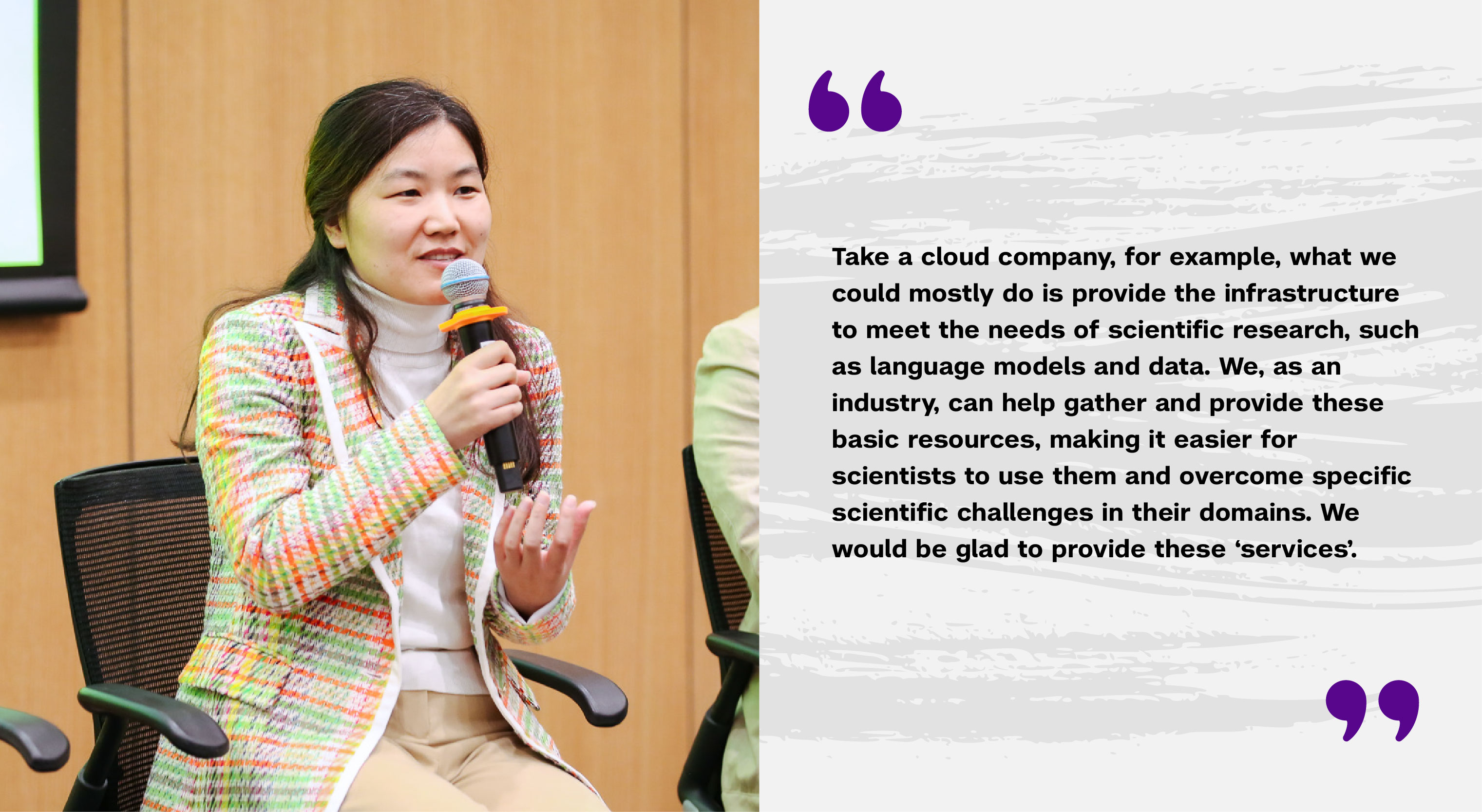 —— Senior Expert and AI Team Director of China Telecom e-Surfing Company Cao Lina
—— Senior Expert and AI Team Director of China Telecom e-Surfing Company Cao Lina
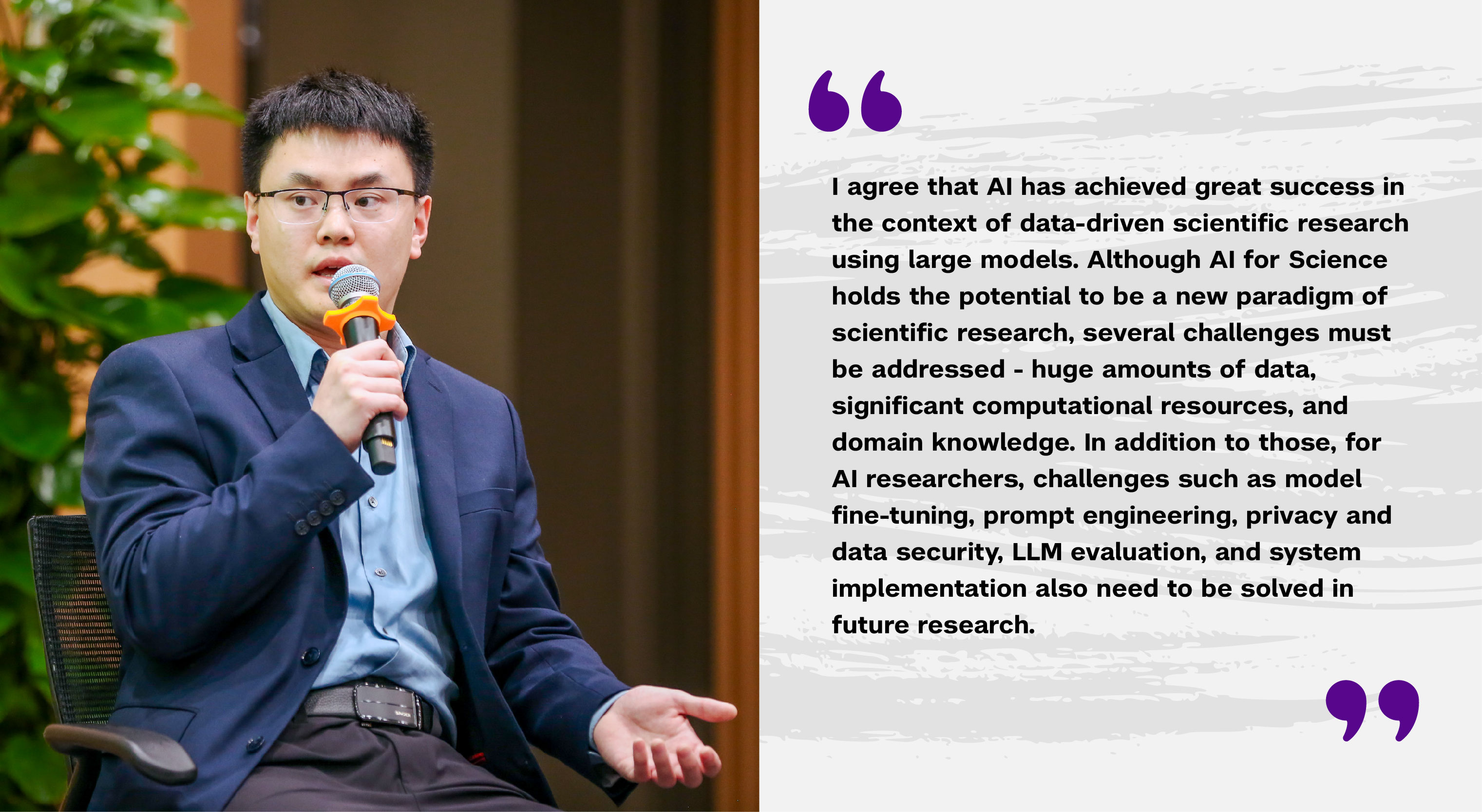 —— Zhejiang University Professor of Computer Science Wang Haishuai
—— Zhejiang University Professor of Computer Science Wang Haishuai
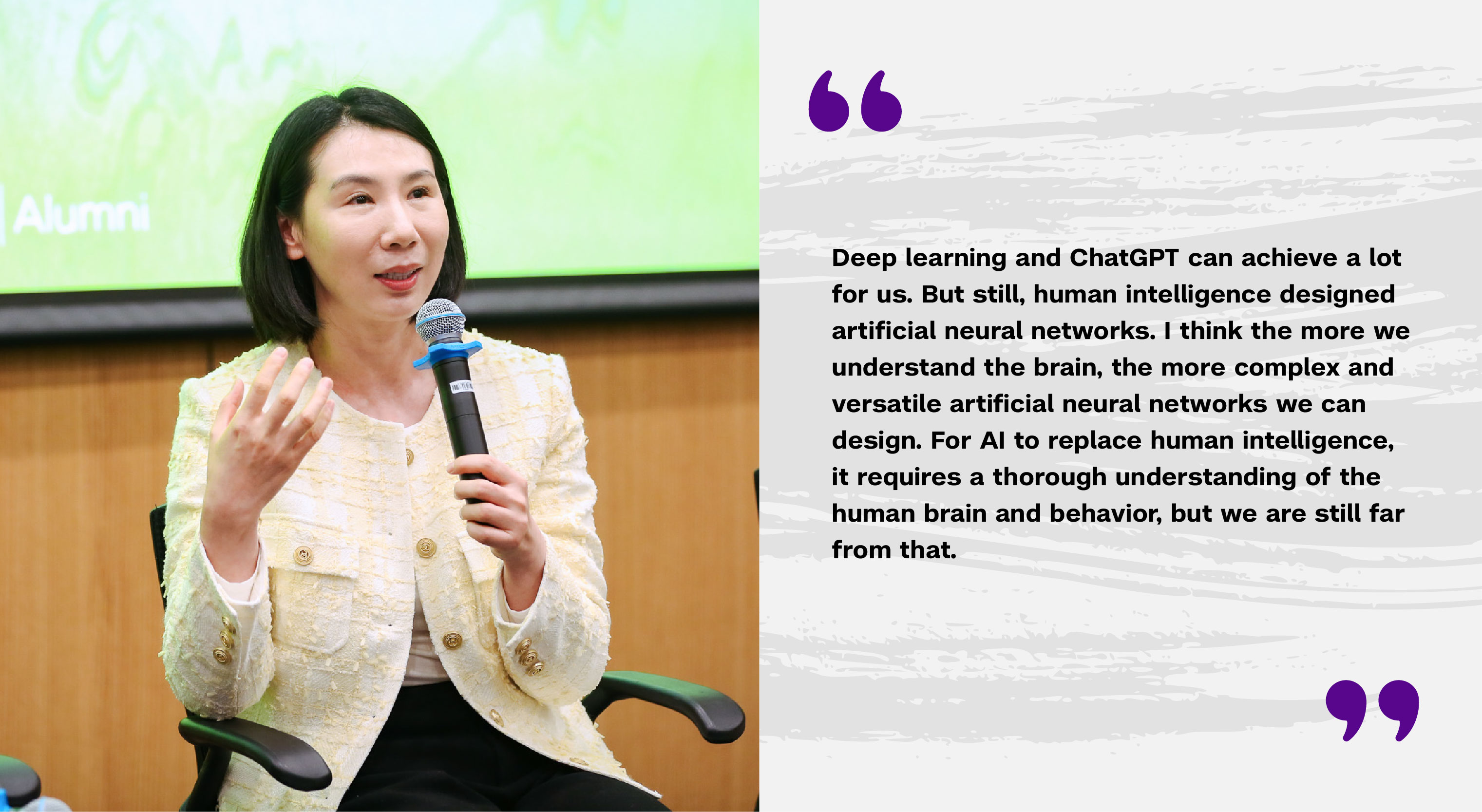 —— NYU Shanghai Professor of Neural Science and Psychology Li Li
—— NYU Shanghai Professor of Neural Science and Psychology Li Li
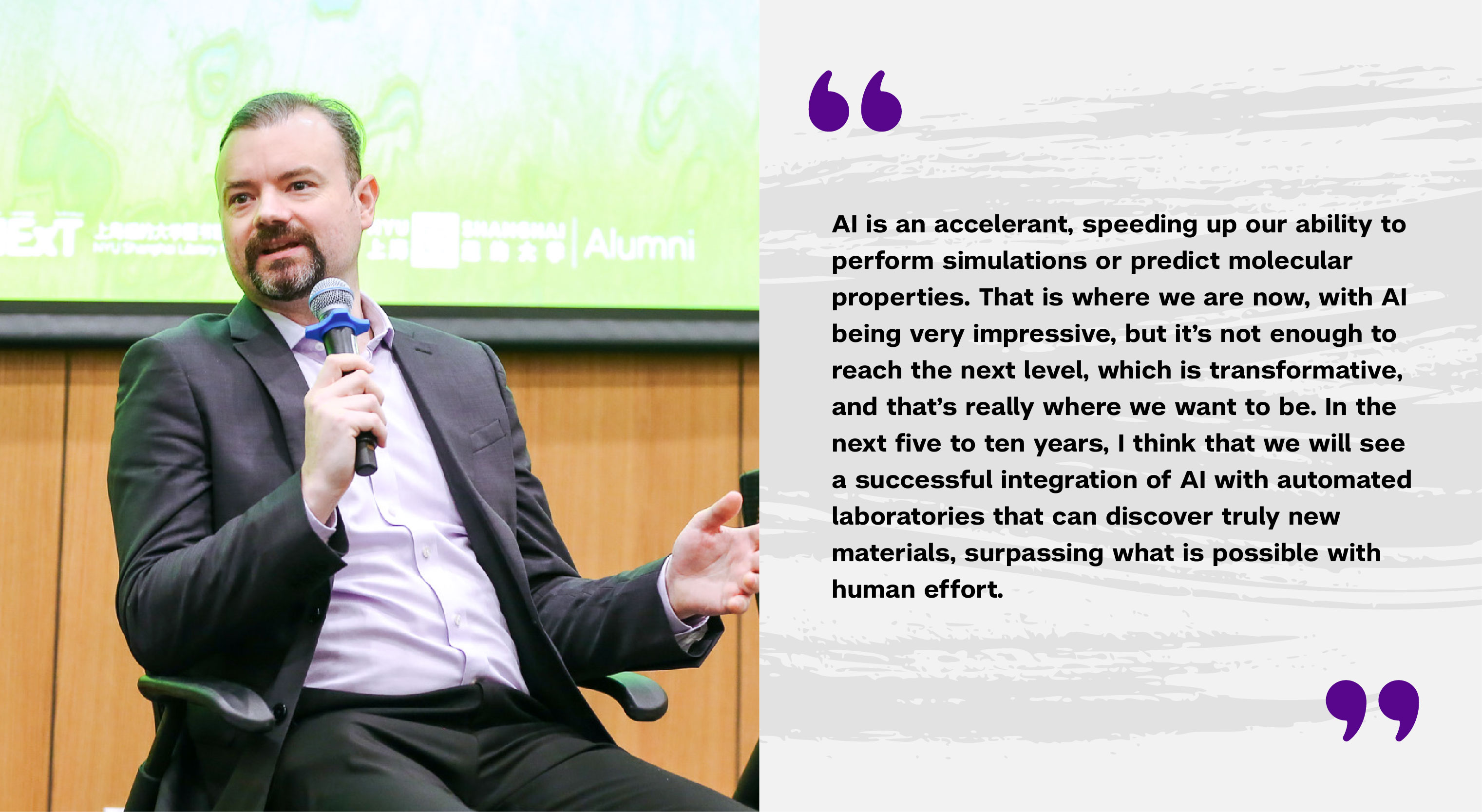 —— NYU Shanghai Assistant Professor of Chemistry William Glover
—— NYU Shanghai Assistant Professor of Chemistry William Glover
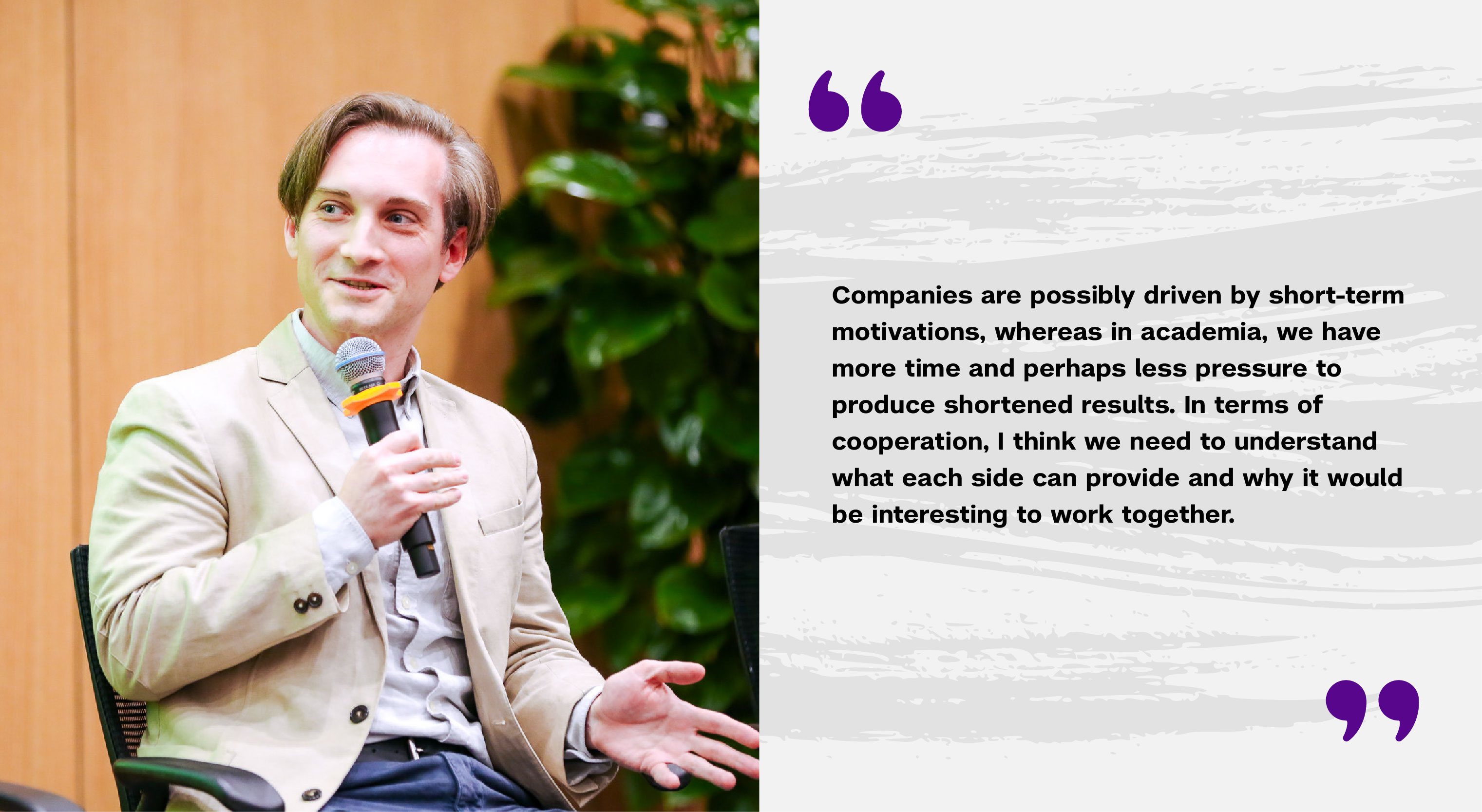 —— NYU Shanghai Assistant Professor of Mathematics and Data Science Mathieu Laurière
—— NYU Shanghai Assistant Professor of Mathematics and Data Science Mathieu Laurière
The AI for Science event was part of the AI Forum Series events, co-hosted by the Shanghai Frontiers Science Center of Artificial Intelligence and Deep Learning and NYU Shanghai Library. “We built this venue to engage our own community and friends of NYU Shanghai for critical inquiry of emergent technologies and their social implications, grounded in scientific reasoning,” shared Data Services Librarian Dai Yun who curated the event. Another event of the AI Forum Series will be held on April 21, with the theme of AI for Society, conducted by Zhang Hongjiang, international member of US National Academy of Engineering and founder and chairman of Beijing Academy of Artificial Intelligence.


